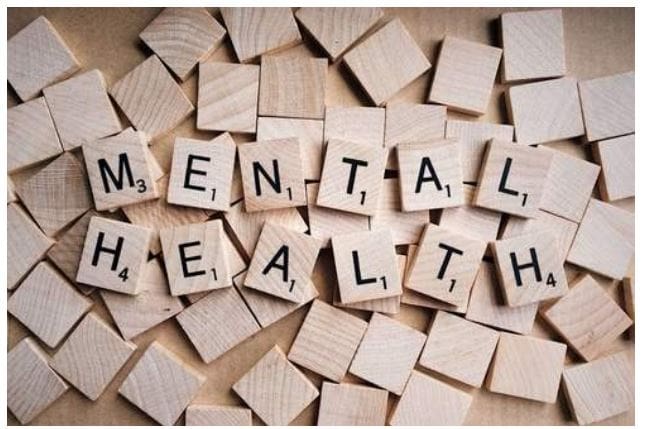
The Director of the Pan American Health Organization (PAHO), Dr Jarbas Barbosa, today urged leaders and decision makers to ensure mental health is placed top of political agendas and integrated into all sectors and policies, in order to address worsening mental health in the Americas due to the COVID-19 pandemic.
“The mental health of the population of the Americas has been severely impacted by the COVID-19 pandemic,” Dr. Barbosa said at a media briefing today to launch the report, “and its effects on our lives, economies and societies.”
While mental health has historically represented a significant source of disability and mortality in the Americas, accounting for nearly one-third of all years lived with a disability, the COVID-19 pandemic further increased the risk-factors for mental health issues, including unemployment, financial insecurity, and grief and loss.
Despite the high level of mental health issues in the Region, the vast majority of those with a condition do not receive the care they need. In 2020, more than 80% of people with a severe mental health condition, including psychosis, did not receive treatment.
The PAHO Director highlighted that this lack of access to care is due to a variety of factors that pre-date the pandemic, including: low investment, only 3% of countries’ health budgets are allocated to mental health; a reliance on long-stay hospitalization when the majority of mental health problems can be resolved in the community; a chronic shortage of trained mental health personnel; and reduced access to services for those living in vulnerable situations.
To address these issues, in May 2022 PAHO established the High-Level Commission on Mental Health and COVID-19.
The Commission, which is made up of 17 experts from government, civil society, academia and those with lived experience of mental health conditions, was tasked with providing guidance to PAHO and its Member States on how to advance mental health in the Region during and after the pandemic.
The Commission’s report, A New Agenda for Mental Health in the Region of the Americas, provides PAHO with ten recommendations for countries on how to improve mental health care:

- Elevate mental health at the national and supranational levels.
- Integrate mental health into all policies.
- Increase the quantity and improve the quality of financing for mental health.
- Ensure the human rights of people living with mental health conditions.
- Promote and protect mental health across the life course.
- Improve and expand community-based mental health services and care.
- Strengthen suicide prevention.
- Adopt a gender transformative approach to mental health.
- Address racism and racial discrimination as a key determinant of mental health.
- Improve mental health data and research.
“Investing in mental health is crucial to promote equitable and sustainable human development for all to live with well-being and dignity,” Dr. Epsy Campbell Barr, Chair of the Commission and former Vice-President of Costa Rica, said.
“We must remember that the mental health burden is not a private struggle but a public health crisis that warrants urgent and immediate action.
“Today, we don’t just launch a report; we launch a beacon of hope, a roadmap for change in how we view, treat, and prioritize mental health in the Americas.
It is now in our hands to shift how we approach mental health, especially in a global crisis that has profoundly affected it,” added Dr. Nestor Mendez, Co-Chair of the Commission and Assistant Director General of the Organization of American States (OAS).
Mental Health in the Americas
- Nearly one-third of all years lived with disability (YLDs) and one-fifth of disability adjusted life years (DALYs) are due to mental, neurological and substance use conditions and suicide.
- Depressive and anxiety disorders are the third and fourth leading causes of disability.
- Alcohol is responsible for 5.5% of all deaths in the Americas.
- The Americas has the second highest level of alcohol consumption in the world.
- Suicide claims the lives of nearly 100,000 people each year.
- The regional age-adjusted suicide rate increased by 17% between 2000 – 2019.
- 8 our of 10 individuals with a severe mental health condition do not receive treatment.
- In 2020, during the COVID-19 pandemic, major depressive disorders increased by 35% and anxiety disorders by 32%.
- 65% of countries reported disruptions to essential mental health and substance use services in 2020. This number has decreased to 14% in early 2023.
CLICK HERE TO JOIN OUR WHATSAPP GROUP
CLICK HERE TO JOIN OUR WHATSAPP GROUP
CLICK HERE TO JOIN OUR WHATSAPP GROUP
CLICK HERE TO JOIN OUR WHATSAPP GROUP
CLICK HERE TO JOIN OUR WHATSAPP GROUP
CLICK HERE TO JOIN OUR WHATSAPP GROUP
Advertise with the mоѕt vіѕіtеd nеwѕ ѕіtе іn Antigua!
We offer fully customizable and flexible digital marketing packages.
Contact us at [email protected]
















